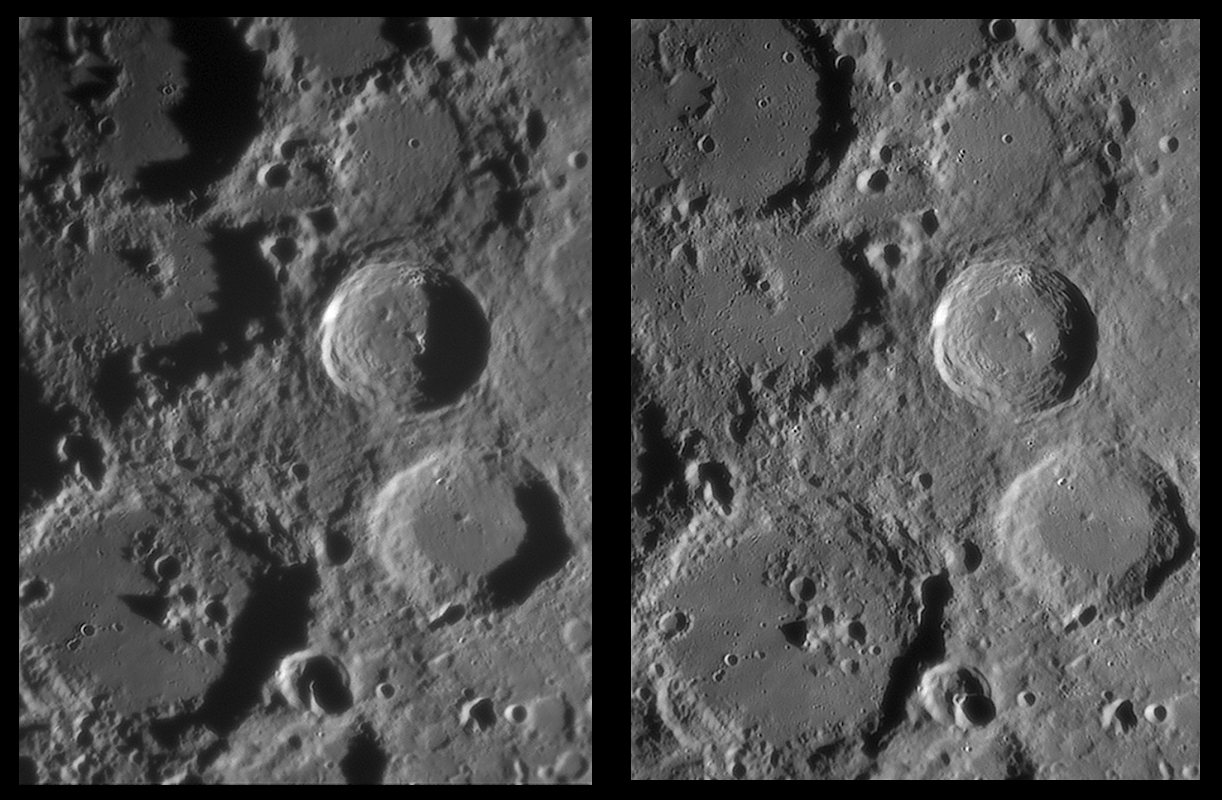images by Bob Pilz
About a month ago I imaged the area from Blanchinus to Aliacensis and over to Walter. A few days ago I was able to get another almost identically framed image of this same area but almost exactly .5 days (actually .51 according to VMA) later in the lunar monthly cycle. The attached image shows these two versions side by side. Several observations:
1) The images were post-processed identically so that the relative brightnesses between the two images are approximately correct (they probably are off some since I can’t guarantee that each was recorded with the same maximum histogram value but they shouldn’t be too different).
2) The earlier image was taken in ok seeing but the latest image was taken in excellent seeing and probably represents the hightest resolution image I’ve been able to get with my 8″ scope. This was aided by both images being near perihelion. That can really make a difference.
3) I think the most recent image does a better job of showing the ejecta from Werner where it overlays Blanchinus (and southern La Caille), Aliacensis and a wedge shaped section in Regiomontanus (which I hadn’t previously noticed on the first image). In particular the section in Regiomontanus benefits from the two lighting situations and has a distinct look as if the ejecta was fluid and flowed over this area like a minature area of mare lava.
4) I also liked how it worked out to be about .5 lunar day difference in lighting. I don’t know that a change this short could be observed in a single night and even if it could the moon would be too close to the horizon for each image to have decent seeing. As luck would have it, a clear night with excellent seeing came around close to a lunar month later. It gives me a better feel for how much shadows change over a given interval of time.
Bob Pilz
Technical Details:
Left: 2006/12/28, Utime: ~00:06. Right: 2007/01/27, Utime: ~02:24. Both: 200mm f/6 Newtonian reflector, Televue 3x Barlow , DMK 21BF04 B/W camera, ‘Blue’ IR-block filter, .20 arcsec/pixel, 30 fps, 1/39 sec, 600/6000 frames stacked. Processed in Registax, ImagesPlus, PS CS. Taken from Lat: 35 degrees 36 minutes N, Long: 82 degrees 33 minutes W, Elev: ~850m
Related Links:
Rükl charts 55 & 65
Bob’s website
Yesterday's LPOD: Ringed with Almost Nothing Visible
Tomorrow's LPOD: A Chinese Globe




